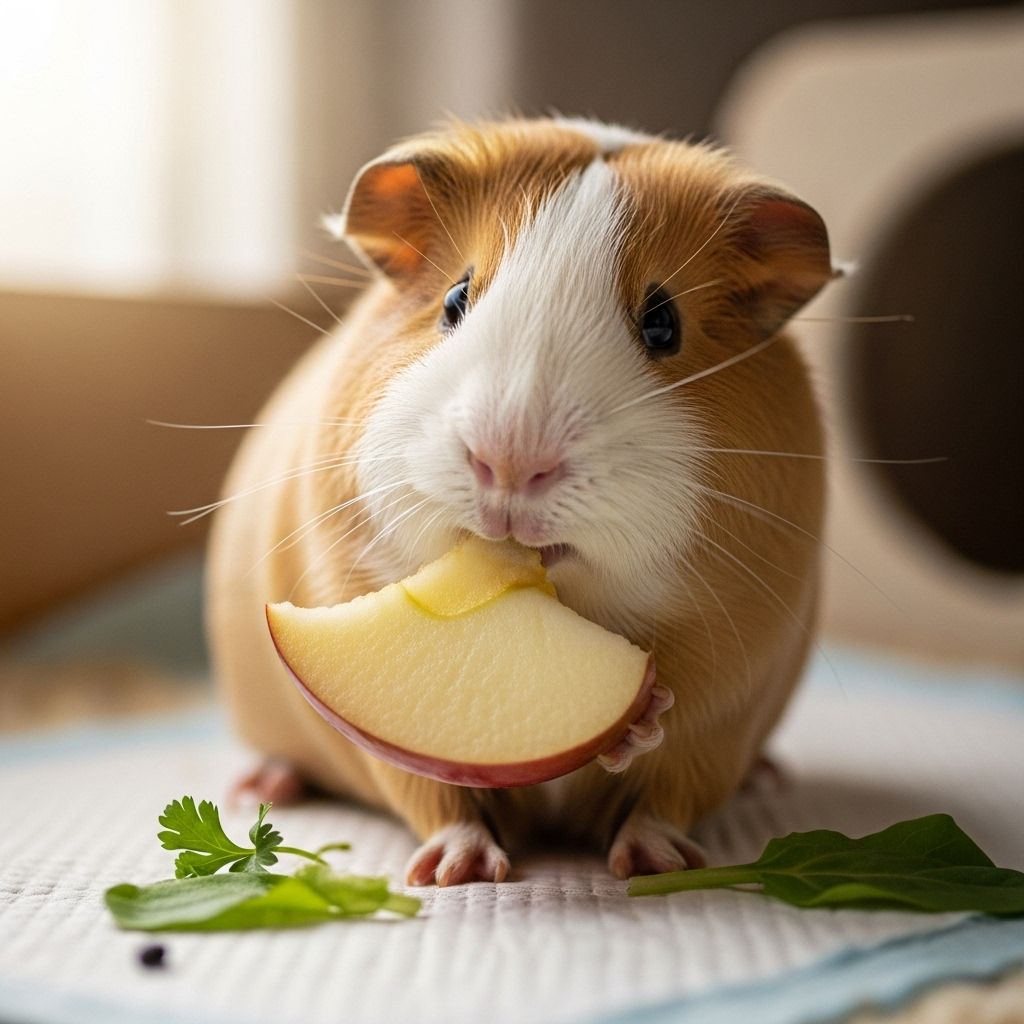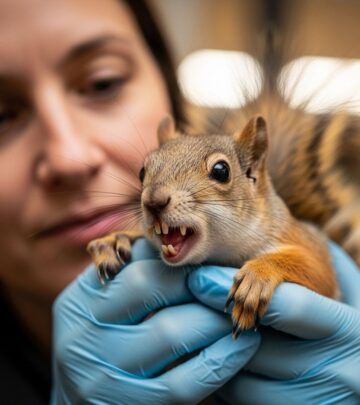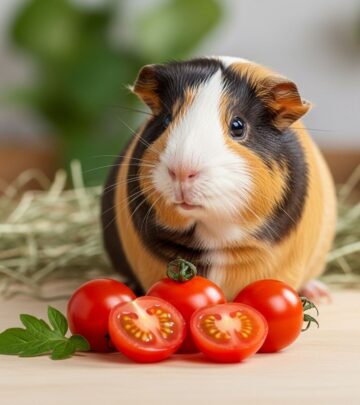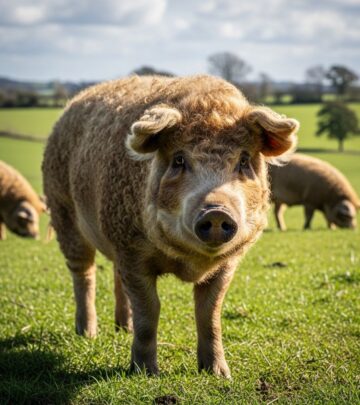Can Guinea Pigs Eat Apples? A Safe and Complete Guide for Owners
Fruit treats stay refreshing when cut small and rinsed to protect your pet’s wellbeing.

Can Guinea Pigs Eat Apples?
Guinea pigs are beloved small pets known for their cute personalities and diverse tastes in food. Many owners wonder if apples, a common household fruit, are a safe and healthy addition to their pet’s diet. The simple answer is yes, guinea pigs can eat apples — but only under specific, careful conditions. This article explores the benefits and risks, which parts of the apple are safe, portion advice, and how apples fit into a complete guinea pig diet.
Nutritional Benefits of Apples for Guinea Pigs
Apples offer several nutrients that can benefit guinea pigs when fed in moderation. Here are the main nutritional highlights:
- Vitamin C: Essential for guinea pigs, since they cannot produce it on their own. A deficiency leads to scurvy with symptoms like lethargy and swollen joints.
- Dietary Fiber: Supports healthy digestion and prevents constipation.
- Hydration: Apples have a high water content which can help keep guinea pigs hydrated, especially in warm weather.
- Micronutrients: Small amounts of potassium, magnesium, and iron help support cellular health and metabolism.
Despite these benefits, apples must be viewed as an occasional treat, never a substitute for core dietary needs like hay and quality guinea pig pellets.
Why Do Guinea Pigs Need Vitamin C?
Vitamin C is a critical nutrient for guinea pigs, because like humans, they cannot synthesize it themselves. Vitamin C plays several roles in their health:
- Helps produce collagen for skin, fur, and wound healing
- Supports immune system function
- Prevents scurvy — symptoms include weight loss, swollen joints, bleeding gums, and decreased mobility
Apple slices can supplement vitamin C intake, but they should never be the primary source. Instead, they can be part of a varied, balanced diet that includes vitamin C-rich vegetables.
Are Apples Safe for Guinea Pigs?
Apples are safe for guinea pigs in moderation, but there are key factors to consider before feeding:
- Moderation: Apples are high in natural sugar, which can cause obesity, diabetes, digestive upsets, or dental issues if overfed.
- No processed or cooked apples: Only raw, fresh apple pieces are safe. Dried, canned, or baked apples often contain added sugars or preservatives.
Types of Apples to Feed
Most varieties of fresh apples (like Red Delicious and Granny Smith) are safe for guinea pigs. However, note the differences:
- Red apples: Sweeter, higher in sugar.
- Green apples: More tart, which some pets may prefer but can occasionally irritate the mouth or gut.
Apple Varieties to Avoid
- Do not offer cooking apples or apples prepared with any kind of sweetener, spice, or additive.
Risks and Precautions When Feeding Apples
While apples are generally safe, improper serving can lead to hazards for your guinea pig:
- High sugar content: May lead to digestive problems, diarrhea, obesity, or diabetes if given in excess.
- Apple seeds and core are toxic: The seeds contain amygdalin, which releases cyanide when chewed. Even a small number of seeds can be dangerous.
- Pesticides: If not thoroughly washed, apple skins can contain residues of pesticides or chemicals. Wherever possible, use organic apples or peel the skin.
- Choking risk: Large pieces or core may get lodged in your pet’s throat, causing choking.
How to Prepare Apples for Guinea Pigs
Proper preparation is key to safe apple feeding:
- Wash the apple thoroughly, especially if it is not organic.
- Remove the core and seeds completely. Slice away the flesh; never feed seeds or core parts.
- Cut the apple into small, bite-sized cubes that your guinea pig can easily chew and swallow.
- Optionally peel the skin if it is tough or difficult to wash well.
- Introduce a small piece at first. Watch for allergic reactions or digestive upset over the next 24–48 hours before offering more.
If your guinea pig enjoys the apple without ill effects, you can include small amounts as an occasional treat.
How Much Apple Can a Guinea Pig Eat?
Because of the high sugar and potential for digestive upset, moderation is crucial. The general veterinary consensus is:
- No more than 1–2 small, bite-sized pieces (a half-inch cube) once or twice per week.
- Apples should not be an everyday treat or replace fresh vegetables and hay.
- Individual guinea pigs have different tolerances; always start with the smallest amount and increase only if well tolerated.
Can Guinea Pigs Eat Apple Skin?
Apple skins contain extra fiber and nutrients but can also harbor pesticides. If serving apple skin, make sure it is:
- From a well-washed, preferably organic apple.
- Cut into small, easily managed pieces to avoid choking.
If your guinea pig has sensitive digestion or has never eaten apple skin before, introduce it very slowly and monitor for any tummy troubles.
Can Guinea Pigs Eat Apple Cores or Seeds?
No. Never feed apple seeds or the apple core to guinea pigs. Seeds contain compounds that break down into cyanide, a highly toxic substance even in very small amounts for small animals. The core is tough, difficult to chew, and also poses a choking hazard.
What Do I Do If My Guinea Pig Eats Apple Seeds?
If your guinea pig accidentally eats one or more apple seeds, consult your veterinarian immediately. Cyanide poisoning is serious and can be fatal in small pets.
What Other Fruits Can Guinea Pigs Eat?
Guinea pigs enjoy a variety of fresh fruits, but all must be offered in strict moderation due to natural sugars. Safe fruits (after seeds/cores removed as appropriate) include:
- Banana
- Blueberries
- Carrot (technically a vegetable but often listed with sweet treats)
- Cherry (pit removed)
- Kiwi
- Melon
- Pear (seeds removed)
- Plum (pit removed)
Always confirm each item is safe and serve in small amounts. Never introduce more than one new food at a time so you can spot allergies or digestive problems quickly.
Table: Apple Parts and Their Safety for Guinea Pigs
| Apple Part | Safe for Guinea Pigs? | Notes |
|---|---|---|
| Flesh/Fruit | Yes (Moderation) | High in sugar, feed as an occasional treat. |
| Skin | Yes (Washed/Organic) | Provide extra fiber, but can contain pesticides. |
| Seeds | No | Toxic; contain cyanide-producing compounds. |
| Core | No | Tough, choking hazard, may contain seeds. |
| Dried/Cooked/Canned Apple | No | Concentrated sugars and additives are harmful. |
How Apples Fit in a Complete Guinea Pig Diet
The best diet for guinea pigs is based on high-fiber food, limited sweets, and plenty of variety for vitamin intake. Here’s an ideal daily outline:
- Unlimited, fresh hay (timothy, orchard grass, or meadow hay): The staple of any guinea pig diet.
- Fresh vegetables daily (e.g., bell pepper, cucumber, romaine, carrot): To supply vitamin C and other nutrients.
- Small portion of guinea pig pellets: Choose vitamin C-fortified brands.
- Occasional treats (such as apple; limit to weekly, small servings).
- Unlimited fresh water.
Frequently Asked Questions (FAQs)
What is the best way to introduce apples to my guinea pig?
Begin with a single, tiny piece. Wait 24–48 hours and monitor for any sign of diarrhea, itching, loss of appetite, or other discomfort. If your guinea pig tolerates the apple well, you can gradually make apples an occasional treat.
Can baby guinea pigs eat apples?
Wait until your guinea pig is at least 4 months old and eating solid foods before introducing fruit treats like apple — and only in tiny portions. Babies are even more sensitive to sugar and digestive changes.
How often can I feed apples?
Limit apple treats to 1–2 times per week. Never exceed a half-inch cube per serving.
Are dried or cooked apples OK?
No. Only fresh, raw apple is safe. Dried, candied, or cooked apples are too high in sugar and may have dangerous additives.
Can guinea pigs eat apple leaves or twigs?
Generally, leaves and twigs from fruit trees can be problematic due to pesticide exposure and natural plant toxins. Never offer apple tree branches or leaves unless you are certain they are safe and untreated.
Signs of apple intolerance or allergy?
If your guinea pig develops diarrhea, lethargy, itching, swelling, breathing issues, or stops eating, discontinue apple immediately and contact your veterinarian.
Do apples help with guinea pig dental health?
Chewing crunchy fruits like apple flesh can help wear down teeth, but apples’ sugar is a risk for tooth decay. Hay and appropriate chew toys are best for dental health.
Key Takeaways
- Yes, guinea pigs can eat apples, but only the flesh and skin (well-washed and seedless), never seeds or cores.
- Feed apples as a rare treat, no more than 1–2 small pieces weekly.
- Always introduce new foods one at a time and watch for signs of digestive distress or allergic reaction.
- The foundation of your guinea pig’s diet should always be fresh hay and vitamin C-rich vegetables, with fruit as an occasional bonus.
References
- https://candcguineapigcages.co.uk/can-guinea-pigs-eat-apples-a-guide-to-your-pets-diet/
- https://www.guineadad.com/blogs/news/guineadad-food-blog-can-guinea-pigs-eat-apples
- https://www.chewy.com/education/small-pet/guinea-pig/can-guinea-pigs-eat-apples
- https://hay-day.co.uk/blogs/advice/can-guinea-pigs-eat-apples
- https://www.pdsa.org.uk/pet-help-and-advice/looking-after-your-pet/small-pets/your-guinea-pig-s-diet
- https://oxbowanimalhealth.com/blog/foods-guinea-pigs-should-never-eat/
- https://kavee.com/blogs/the-piggy-blog/safe-fruits-for-guinea-pigs
- https://smallpetselect.com/what-fruits-can-guinea-pigs-eat-and-how-much/
- https://www.rspca.org.uk/adviceandwelfare/pets/rodents/guineapigs/diet
Read full bio of medha deb












